evolutionary biology

Shermer and Dawkins discuss Dawkins’ new book, The Genetic Book of the Dead, exploring how an animal’s genes can be interpreted as a record of its ancestral history. They delve into the interdisciplinary nature of evolutionary studies, linking archaeology, biology, and geology. The conversation clarifies the difference between genetic and phenotypic records, using the metaphor of QR codes to explain how genetic information encodes environmental history. They also touch on the future implications of this research for understanding evolution.
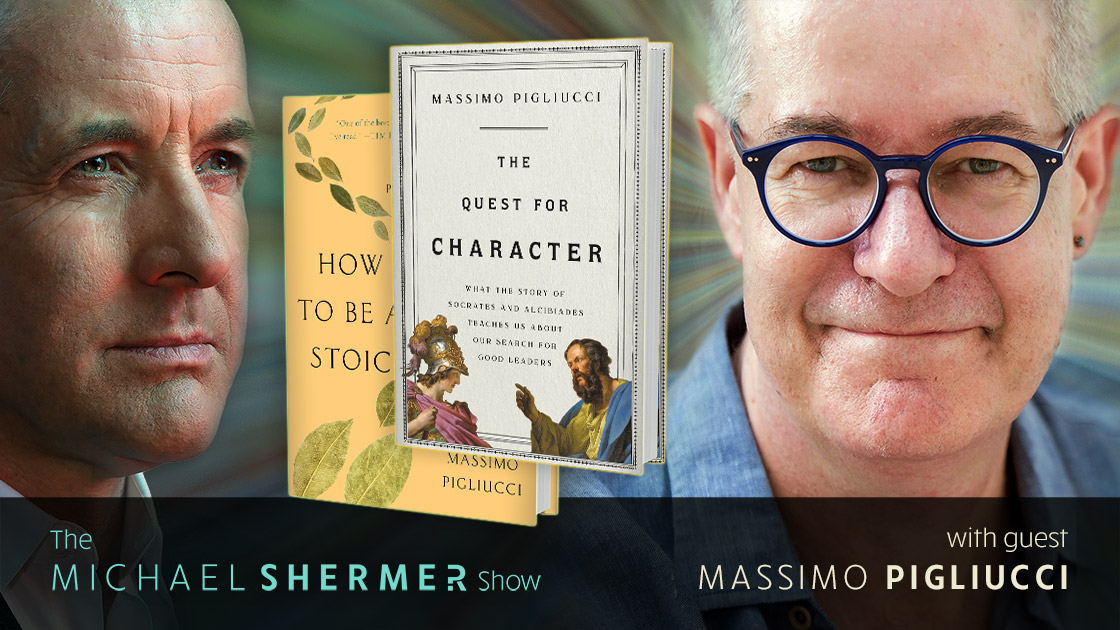
Shermer and Pigluicci discuss: his journey from Rome to New York • evolutionary biology • stoic philosophy • can there be a science of meaning and morality? • ultimate questions • desire, action, depression, suicide, anger, anxiety, love, and friendship • practical spiritual exercises • how to react to situations • teaching virtue to politicians • philosophy and politics • character and leadership • the nature of evil.
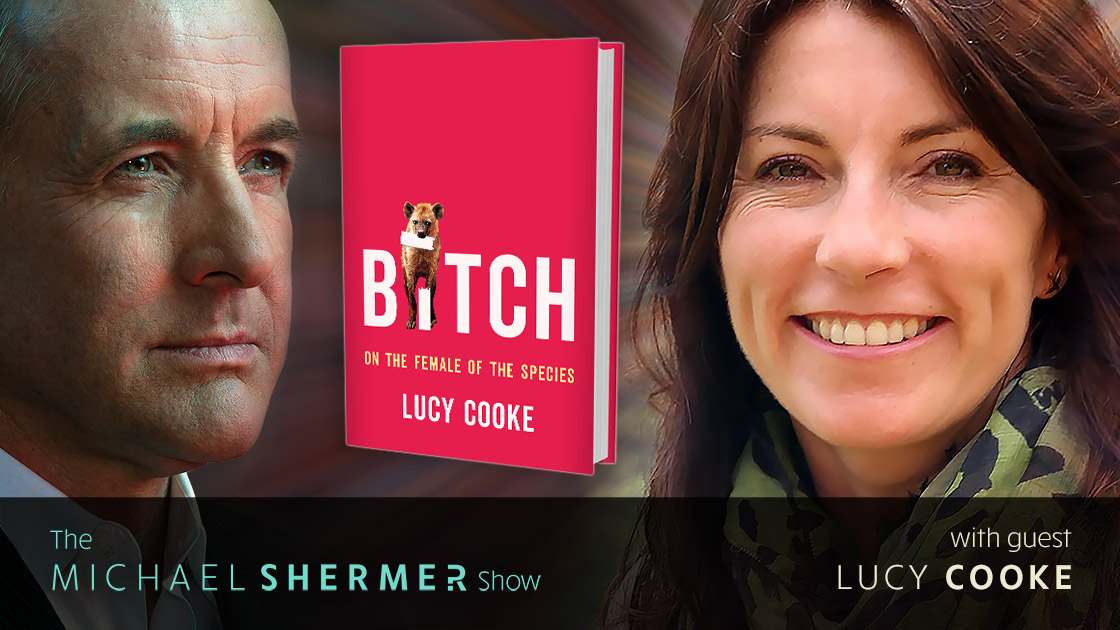
Shermer and Cooke discuss: the definition of male and female across the animal kingdom • male bias in the history of science • genes involved in sex determination and how they work • sexual selection • adaptationism vs. non-adaptationism • Why do women have orgasms? • why female animals are just as promiscuous, competitive, aggressive, dominant and dynamic as males • what humans can learn from non-human animals • maternal/paternal instincts • patriarchy/matriarchy across the animal kingdom • why the sexes…
In this letter to Bert Hölldobler, following up on his defense of his long-time colleague E. O. Wilson, who has been falsely accused of racism and knowingly promoting race science, Mel Konner, who also knew and worked with Wilson, reinforces the point that Wilson’s defense of Philippe Rushton was done out of concerns about academic freedom; in fact, Konner notes that there are other reasons for critiquing Wilson, primarily for his ultimate rejection of kin selection — one of the…
Mel Konner, in response to Bert Hölldobler’s defense of E. O. Wilson, reinforces the point that Wilson’s defense of Philippe Rushton was done out of concerns about academic freedom; PLUS: Michael Shermer speaks with Oliver Stone about Ukraine, Putin, and the military-industrial complex.
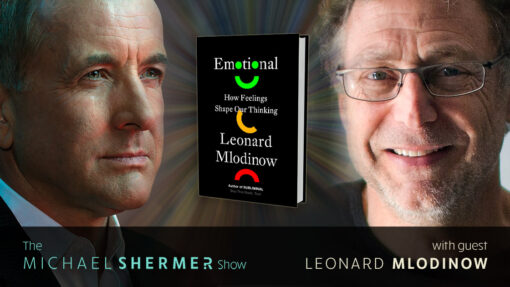
Extraordinary advances in psychology and neuroscience have proven that emotions are as critical to our well-being as thinking. In this conversation, Michael Shermer speaks with Leonard Mlodinow about his new book Emotional: How Feelings Shape Our Thinking.
Extraordinary advances in psychology and neuroscience have proven that emotions are as critical to our well-being as thinking. In this conversation, Michael Shermer speaks with Leonard Mlodinow about his new book Emotional: How Feelings Shape Our Thinking.
To honor the legendary evolutionary theorist and biologist Edward O. Wilson (1929–2021), who passed away on December 26, 2021 at the age of 92, we present two tributes to him from Mark Moffett and Frank Sulloway, scientists who knew the man well and are deeply familiar with his work and his legacy.
In this tribute to Edward O. Wilson, Frank J. Sulloway recounts how the Harvard evolutionary biologist had a profound and enduring influence on his own life and academic career. Wilson, says Sulloway, was the model of a mentor who cared deeply about his students and collaborators. By sharing his infectious love of the wonders of evolutionary biology, Wilson inspired countless others with his impassioned vision about the need to safeguard biological diversity.

To honor the legendary evolutionary theorist and biologist Edward O. Wilson, who passed away on December 26 at the age of 92, his former student Mark Moffett, pays tribute to his mentor in this deeply moving memoir of his time working with the great scientist.
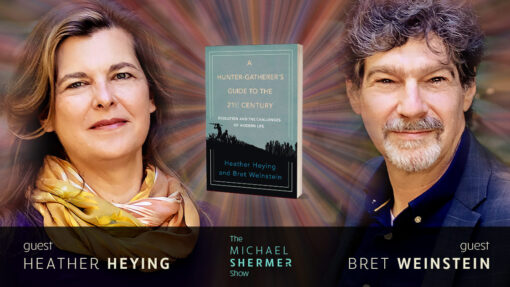
We are living through the most prosperous age in all of human history, yet people are more listless, divided and miserable than ever. In episode 209 Michael Shermer speaks with Heather Heying and Bret Weinstein about evolution and the challenges of modern life, based on their new book A Hunter-Gatherer’s Guide to the 21st Century.
In episode 209 Michael Shermer speaks with Heather Heying and Bret Weinstein about evolution and the challenges of modern life, based on their new book A Hunter-Gatherer’s Guide to the 21st Century. PLUS, new Skeptic digital subscriptions are on sale for only $6.99 for 4 issues until Sept. 26, 2021!
In episode 150 of The Michael Shermer Show, Harvard professor of human evolutionary biology Daniel Lieberman discusses his pioneering researcher on the evolution of human physical activity in his book Exercised: Why Something We Never Evolved to Do is Healthy and Rewarding. PLUS: Perhaps one of the most bizarre beliefs rampant in modern times is that malign, shape-shifting reptilian extraterrestrial invaders, disguised as human beings, secretly control the governments of the world. It is possible that we recently experienced a…
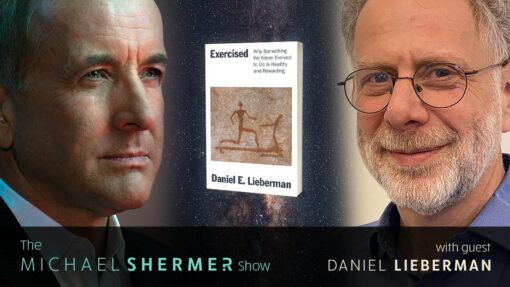
In episode 150 of The Michael Shermer Show, Harvard professor of human evolutionary biology Daniel Lieberman discusses his pioneering researcher on the evolution of human physical activity in his book Exercised: Why Something We Never Evolved to Do is Healthy and Rewarding. Using his own research and experiences throughout the world, Lieberman recounts how and why humans evolved to walk, run, dig, and do other necessary and rewarding physical activities while avoiding needless exertion.
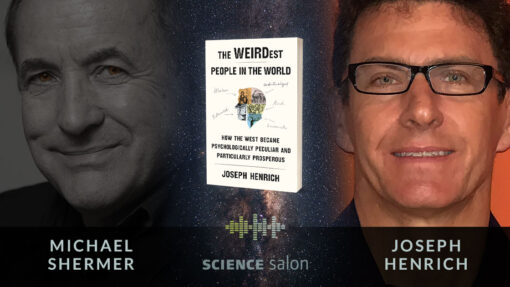
WEIRD: Western, Educated, Industrialized, Rich, and Democratic. Unlike much of the world today, and most people who have ever lived, WEIRD people are highly individualistic, self-obsessed, control-oriented, nonconformist, and analytical. How did WEIRD populations become so psychologically distinct? What role did these psychological differences play in the industrial revolution and the global expansion of Europe during the last few centuries?
In Science Salon podcast # 134, Michael Shermer speaks Joseph Henrich about his book: The WEIRDest People in the World: How the West Became Psychologically Peculiar and Particularly Prosperous.
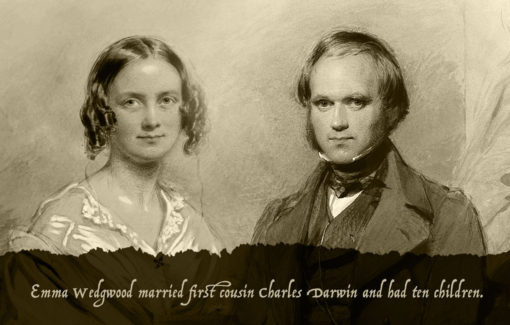
The incest taboo is a human institution; we universally prohibit having sex with siblings, parents, or grandparents, but vary culturally regarding cousins, uncles, and others on our family tree. We disagree on how far prohibition should go, and why. Indeed, natural selection primed us for cousin marriage as it offers some evolutionary advantage. In this article, which appeared in Skeptic magazine 24.2 (2019), Gabriel Andrade asks: How truly dangerous is cousin marriage, and should it be legalized?
When will the world end? How likely is it that intelligent extraterrestrial life exists? Are we living in a simulation like the Matrix? Is our universe but one in a multiverse? How does Warren Buffett continue to beat the stock market? How much longer will your romance last? In Science Salon # 76 — a wide ranging conversation with Michael Shermer — science writer William Poundstone answers these questions and more. PLUS Gabriel Andrade examines the incest taboo and asks:…
In Science Salon # 60 — exceptionally important conversation — Dr. Shermer discusses at length the background to and research of Dr. Nicholas Christakis, a physician and evolutionary sociologist famous for his study of social networks in humans and other animals. PLUS: The breadth of what can be meant by the word “hoax” makes the concept — and consequences — worthy of renewed study. Michelle E. Ainsworth reviews Bunk: The Rise of Hoaxes, Humbug, Plagiarists, Phonies, Post-Facts, and Fake News…

In Science Salon # 60 — an exceptionally important conversation — Dr. Shermer discusses at length the background to and research of Dr. Nicholas Christakis, a physician and evolutionary sociologist famous for his study of social networks in humans and other animals.
NEXT →


















